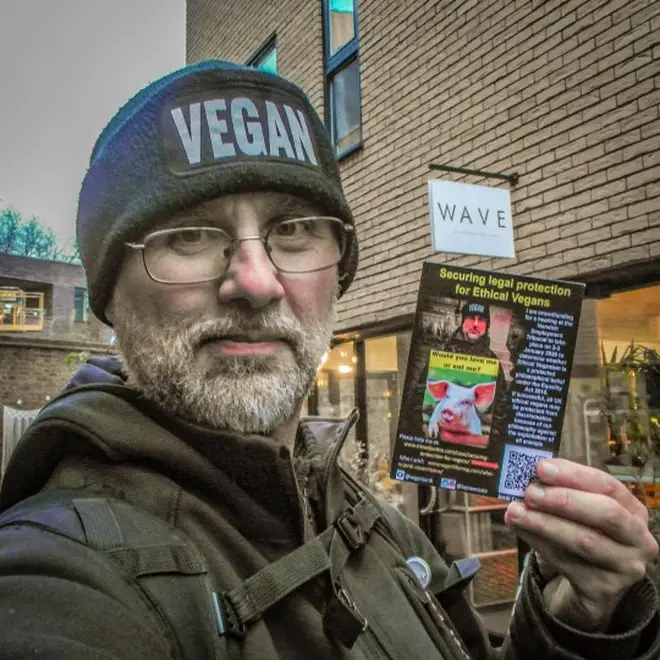
Ian Payne 4am - 7am
30 December 2019, 06:18

An employment tribunal judge sitting in Norwich has ruled that ethical veganism is a philosophical belief and is therefore protected by law.
Jordi Casamitjana claims he was sacked by his employer, the League Against Cruel Sports, after disclosing to other employees that it invested its pension funds in firms involved in animal testing and for failing to follow a management instruction not to provide financial advice to his colleagues.
The zoologist and animal rights activist has won a landmark legal battle to get ethical veganism added to a list of beliefs protected under the Equality Act 2010.
Dietary vegans and ethical vegans both eat a plant-based diet, but ethical vegans also try to exclude all forms of animal exploitation including not wearing clothing made of wool or leather and not using products tested on animals.
“I am an ethical vegan,” Casamitjana said. “This involves much more than just not eating food with animal ingredients, it’s a philosophy and a belief system which encompasses most aspects of my life.”
As well as a traditional vegan diet, not eating meat, dairy or eggs, Mr Casamitjana does not wear leather, silk or wool, he also only dates other vegans.
His legal papers also state he does not take buses "to avoid accidental crashes with insects or birds."
For a belief to be protected under the Act, it must meet a series of tests including being worthy of respect in a democratic society, not being incompatible with human dignity and not conflicting with fundamental rights of others.
Mr Casamitjana, who has crowdfunded his legal action, says he brought the case to prevent vegans from facing “veganphobia” at work or in public.
When he initially brought the case, Mr Casamitjana said the hearing was not primarily about his dismissal, but about establishing ethical veganism as a philosophical belief.
"Although the manner in which I was dismissed was intensely distressing for me, some good may come of it if I am able to establish this valuable protection for all ethical vegans.
"If we are successful in that hearing, we will then proceed to a hearing on the specifics of my dismissal."
His law firm, Slater and Gordon, have described it as a landmark case. In a statement, it said: “Ethical veganism is a philosophical belief held by a significant portion of the population in the UK and around the world. The case sets out how the belief in principle, and how Jordi’s particular interpretations of it, meet the required legal test.”
His former employer, however, insists that Mr Casamitjana was sacked for misconduct. His dismissal letter said his actions were “biased because of your ethical principles and could influence [other employees] to change their pension arrangement”.
A spokeswoman for the league said: “The League Against Cruel Sports is an inclusive employer, and as this is a hearing to decide whether veganism should be a protected status, something which the league does not contest, it would be inappropriate for us to comment further.”
The result comes as hundreds of thousands of people are expected to try to observe “Veganuary” by going without animal produce next month.
According to polls quoted by the Vegan Society, the number of vegans in Britain has quadrupled since 2014, increasing from 150,000 to 600,000.
Orders for vegan meals have increased by 388% between 2016 and 2018, making them the UK’s fastest-growing takeaway choice.